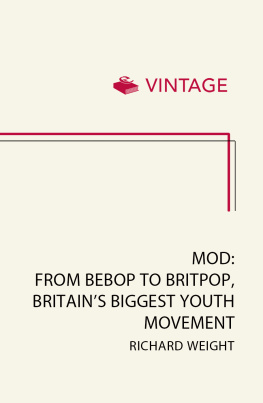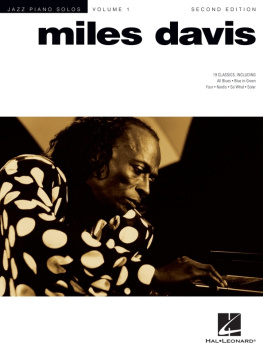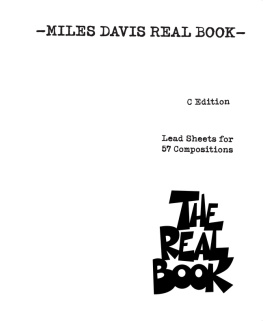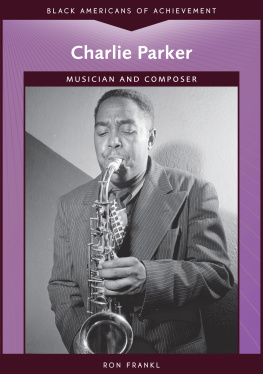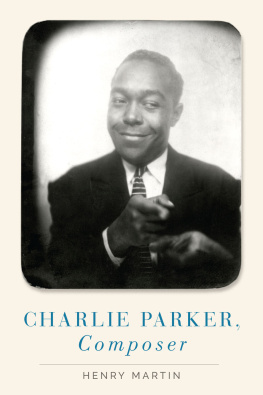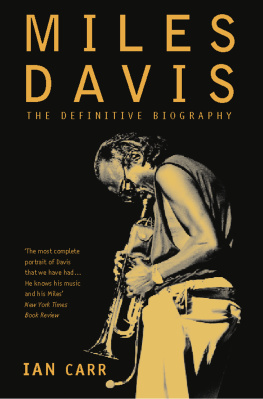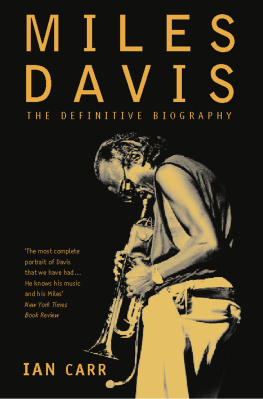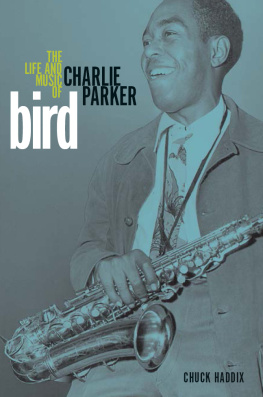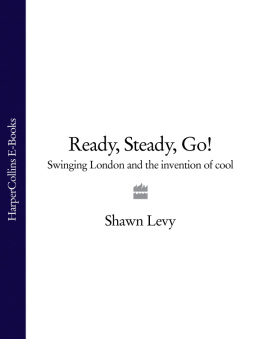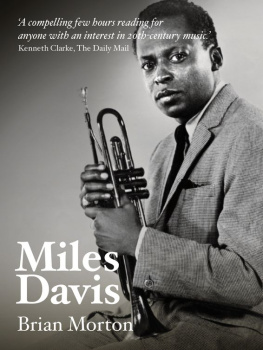Contents
About the Author
Richard Weight is the author of Patriots: National Identity in Britain 19402000 and co-author of Modern British History: The Essential A-Z Guide. He studied history at Trinity College, Cambridge and went on to do a PhD at University College, London. He is currently a Visiting Professor at Boston University and is a Fellow of the Royal Historical Society. Richard also makes documentaries for radio and television on many aspects of British life.
About the Book
Welcome to the world of the sharp-suited faces. The Italianistas. The scooter-riding, all-night-dancing instigators of what became, from its myriad sources, a very British phenomenon.
Mod began life as the quintessential working-class movement of a newly affluent nation a uniquely British amalgam of American music and European fashions that mixed modern jazz with modernist design in an attempt to escape the drab conformity, snobbery and prudery of life in 1950s Britain. But what started as a popular cult became a mainstream culture, and a style became a revolution.
In Mod, Richard Weight tells the story of Britains biggest and most influential youth cult. He charts the origins of Mod in the Soho jazz scene of the 1950s, set to the cool sounds of Charlie Parker and Miles Davis. He explores Mods heyday in Swinging London in the mid-60s to a new soundtrack courtesy of the Small Faces, the Who and the Kinks. He takes us to the ModRocker riots at Margate and Brighton, and into the world of fashion and design dominated by Twiggy, Mary Quant and Terence Conran.
But Mod did not end in the 1960s. Richard Weight not only brings us up to the cults revival in the late 70s played out against its own soundtrack of Quadrophenia and the Jam but reveals Mod to be the DNA of British youth culture, leaving its mark on glam and Northern Soul, punk and Two Tone, Britpop and rave.
This is the story of Britains biggest and brassiest youth movement and of its legacy. Music, film, fashion, art, architecture and design nothing was untouched by the eclectic, frenetic, irresistible energy of Mod.
ALSO BY RICHARD WEIGHT
Patriots: National Identity in Britain 19402000
Modern British History: The Essential A-Z Guide
(with Mark Garnett)
RICHARD WEIGHT
Mod!
From Bebop to Britpop, Britains Biggest Youth Movement

This ebook is copyright material and must not be copied, reproduced, transferred, distributed, leased, licensed or publicly performed or used in any way except as specifically permitted in writing by the publishers, as allowed under the terms and conditions under which it was purchased or as strictly permitted by applicable copyright law. Any unauthorized distribution or use of this text may be a direct infringement of the authors and publishers rights and those responsible may be liable in law accordingly.
Version 1.0
Epub ISBN 9781448182497
www.randomhouse.co.uk
Published by Vintage 2015
2 4 6 8 10 9 7 5 3 1
Copyright Richard Weight 2013
Richard Weight has asserted his right under the Copyright, Designs and Patents Act 1988 to be identified as the author of this work
First published in Great Britain in 2013 by
The Bodley Head
Vintage
Random House, 20 Vauxhall Bridge Road,
London SW1V 2SA
A Penguin Random House Company

www.vintage-books.co.uk
www.penguinrandomhouse.com
A CIP catalogue record for this book is available from the British Library
ISBN 9780099597889
For my mother
Angela Weight
who taught me the value of modernism
Objects that are really modern stay so for a long time. If one hears of an item of clothing that is out of date the very next season then one can be sure it was never truly modern, but only falsely professed to being such.
Adolf Loos, Why a Man Should Be Well Dressed,
Vienna, 1898
Acknowledgements
My first thanks go to my agent Bill Hamilton and to Will Sulkin of Random House for getting this book commissioned and for keeping faith during the years it took to get Mod! to market. Sulkin is, quite simply, British publishing at its best. My editor at the Bodley Head, Jrg Hensgen, put time and energy into knocking my thoughts and writing into shape that went beyond the call of duty; and he usually did so with humour as well as honesty. Will Sulkins successor at Random House, Stuart Williams, helped to steer the project to a successful conclusion; and my excellent editor at Vintage, Frances Jessop, ensured that the transition to paperback, with necessary improvements, was a smooth one. The books designer, Matthew Broughton, made it a thing of beauty as well as substance. Professors Peter Hennessy and Martin Daunton gave occasional but equally valuable support from the wings, reminding me why these two great scholars have been mentors to me in the twenty years since I decided to become a professional historian.
I owe a huge debt to my Senior Research Assistant, Chris Gomersall. His intuitive handling of sources and the intellectual stimulus he provided at project meetings were invaluable. My research assistant in the United States, Kelsie Baher, mined useful material from afar. Kelsie, together with the best of my American students from Boston to Berkeley, Chicago to Florida, helped me to see how different British youth culture has been to its American counterpart, for all the superficial similarities that are so often assumed in the mass media.
Many friends and colleagues have sustained me since my last book was published; rest assured that I know who you all are. A close circle continually showed, in the words of Jim Frank, that they had my best interests at heart. They include Jim himself, Nick Black and Ed Davie. Eds clean living under difficult circumstances was an inspiration and he provided valuable practical support during the completion of this book. Bronwen Rices expert transcribing of interviews saved me time under pressure. Thanks also to Anna for her Olympian performances at crucial times during the race to complete the book while keeping body and mind together.
There are also people who will never know how much they helped: the Reverend Nicholas George and various members of the Anglican congregation of St Giles Church, Camberwell; the staff at Caravaggios restaurant in Camberwell (grazie, Fernando); the players and staff at Tottenham Hotspur FC, especially during our best season since the 1960s (cheers, arry); Dr Roger Durston and Mr Colin Hopper, the likes of whom make the NHS such a great institution; and finally, the Blue Note jazz musicians long dead whose music was my muse for many of the days and nights that I struggled to make sense of British youth culture.
The journalist Jonh Ingham lent me his considerable expertise when interviewing some of the fascinating figures who spoke to me about their experience and views of popular Modernism in its various forms. I would like to thank, in no particular order, Mary Quant, Sir Terence Conran, Nick Hornby, William Hunt, Steve White, Norman Jay, Simon Napier-Bell, Prince Buster, Stephen Jones, Sheryl Garratt, Robert Elms, Billy Bragg, Mike Pickering, Margaret Calvert, Peter York, Owen Hatherley, Angela McRobbie, Humphrey Ocean, Gilles Peterson, Richard Williams, Eddie Piller, Paul Tunkin, Don Letts, Greil Marcus and Sir Paul Smith.
And finally, a posthumous and eternal thank you goes to my late father, Phil Strong, whose love, support, intellectual rigour, musical tastes and all-round style have continued to shape my life in the years since his premature death at the age of forty-nine.
Next page
